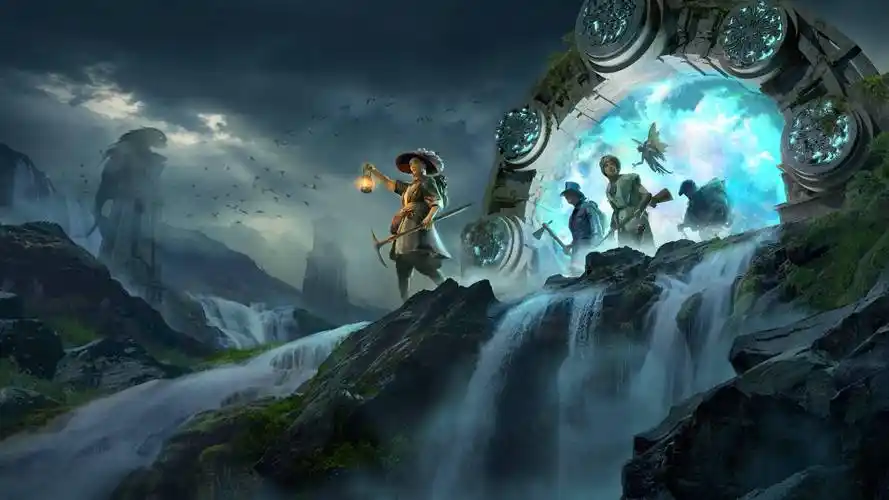Landmark Announcements That Shaped the History of Gaming
The video game industry, a behemoth of modern entertainment, has been punctuated by seismic announcements that have irrevocably altered its course. These landmark moments are more than just press releases or conference reveals; they are cultural touchstones that have redefined technology, business models, and how we play. This article chronicles the most pivotal announcements in deep game news history, moments that sent shockwaves through the community and whose echoes are still felt today.
The Dawn of 3D: The Sony PlayStation (1991)
The 1991 Consumer Electronics Show (CES) was the stage for what would become one of the most consequential betrayals and announcements in tech history. Sony, then a partner with Nintendo to develop a CD-ROM add-on for the Super Nintendo (SNES), abruptly revealed that the partnership had dissolved. But this wasn't just news of a failed deal. In a stunning power move, Sony announced it would use the technology to enter the hardware market itself with a new console: the PlayStation.
This announcement was monumental. It signaled the entry of a consumer electronics titan into the gaming fray, a company with the resources and vision to challenge Nintendo and Sega's dominance. More importantly, it was a bold bet on 3D polygon-based gaming and CD-ROM technology over traditional cartridges. This shift democratized development, reduced costs, and enabled vast worlds full of pre-rendered cutscenes and CD-quality audio. The PlayStation announcement didn't just create a new competitor; it forcefully dragged the entire industry from the 16-bit era into the third dimension, setting a new standard for the future.
The Digital Revolution: Steam’s Launch (2002)
For PC gamers in the early 2000s, game updates were a nightmare of downloading patches from dodgy websites. Multiplayer was fragmented. Then, Valve Software, fresh off the success of Half-Life, announced a platform with an ambitious and, at the time, perplexing vision: Steam.
Initially presented in 2002 as a content delivery and patching system for Valve's own games, the announcement was met with significant skepticism. Gamers bristled at the idea of a mandatory "digital rights management" client. However, Valve’s announcement was a glimpse into a paradigm shift they themselves may not have fully envisioned. They were laying the groundwork for a complete overhaul of PC game distribution.
The true landmark moment was the gradual realization of Steam's potential. The 2004 announcement of Half-Life 2 requiring Steam to play was controversial but cemented its necessity. The subsequent opening of the platform to third-party publishers and the introduction of seasonal sales transformed the announcement of Steam from a mere software launch into the de facto announcement of the digital distribution era. It killed the PC physical market but created a vibrant, accessible, and global marketplace that empowered both mega-studios and indie developers, fundamentally changing the economic model of gaming.
The Social Leap: Facebook Acquires Oculus (2014)
Virtual Reality had long been the holy grail of gaming, a promise perpetually stuck in science fiction. That changed in 2012 when Palmer Luckey's Oculus Rift Kickstarter campaign successfully resurrected mainstream interest in VR. The community of backers felt they were part of a grassroots movement to bring VR to the masses.
Therefore, the announcement on March 25, 2014, that Facebook would acquire Oculus VR for approximately $2 billion was a watershed moment that split the gaming community in two. For many, it was a betrayal—the co-opting of a beloved passion project by a social media conglomerate with different priorities. The fears were palpable: would VR become a data-harvesting social platform rather than a immersive gaming medium?
Yet, this announcement was undeniably landmark. It legitimized VR technology in the eyes of investors and the public overnight. Facebook's vast capital injection accelerated R&D exponentially, leading to the development of the standalone Oculus Quest line, which finally made high-quality VR accessible without a powerful PC. While the ethical debates rage on, this announcement single-handedly propelled VR from a niche enthusiast dream into a commercially viable sector of the industry, forcing competitors like Valve, HTC, and Sony to accelerate their own plans.
The Cinematic Spectacle: PlayStation 4 Reveal & The Last of Us (2013)
E3 2013 was a battleground of next-generation consoles. Microsoft’s Xbox One reveal had been mired in confusion over always-online requirements and game licensing. Sony’s PlayStation 4 reveal event became a landmark announcement not just for what they showed, but for how they masterfully communicated with their audience.
In a moment now etched in gaming history, Sony executive Jack Tretton took the stage and directly addressed every one of Microsoft’s missteps. He announced that the PS4 would support used games without restriction, would not require an always-online connection, and would be priced at $399—a full $100 less than the Xbox One. The crowd erupted. This wasn’t just a product announcement; it was a strategic demolition that perfectly captured the consumer’s mood and unequivocally won the console war before it even began.
But the same event delivered a second landmark announcement: the release date for Naughty Dog’s The Last of Us. The game’s stunning demo showcased a level of narrative depth, character performance, and atmospheric storytelling previously unseen in the medium. This one-two punch—a consumer-friendly hardware policy and a demonstration of breathtaking software—announced that games were not just powerful machines; they were platforms for mature, cinematic experiences that could rival Hollywood in emotional impact.

The Open-World Paradigm: The Legend of Zelda: Breath of the Wild (2016)
For decades, The Legend of Zelda series was the benchmark for meticulously crafted, guided adventure. The formula was sacred. At E3 2016, Nintendo didn’t just announce a new Zelda game; they announced the deconstruction and rebirth of the entire genre.
The unveiling of The Legend of Zelda: Breath of the Wild was a revelation. The trailer showcased a vast, open world governed by physics and chemistry, not rigid scripting. The announcement was that this would be a true open-world game, where systemic gameplay and player freedom were the primary drivers, not a predetermined critical path. It was a shocking and risky departure from tradition.
This announcement sent a clear message to the entire industry: even the most storied franchises could and should innovate. It redefined what an open-world game could be, moving away from map-cluttering icons and toward organic discovery and emergent storytelling. Its influence is immeasurable, seen in countless games that have since adopted its "see it, go there" philosophy. Nintendo’s announcement proved that true landmark moments aren’t just about new technology, but about radically new ideas.















